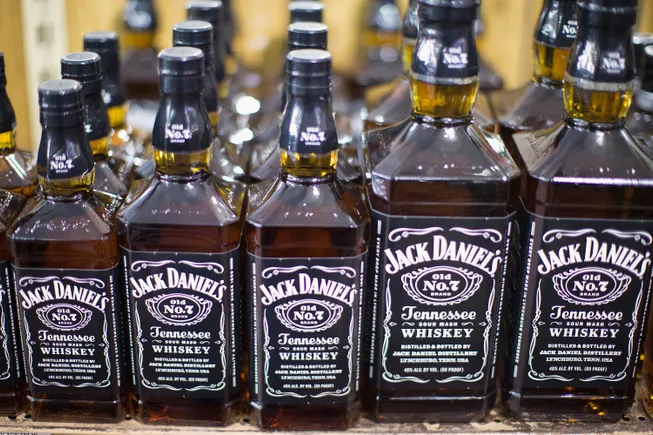In a recent quarterly earnings call, Lawson Whiting, the CEO of Brown-Forman, the parent company of Jack Daniel’s, expressed concern over the decision by Canadian retailers to remove U.S. alcohol from their shelves in protest of President Donald Trump’s trade policies. Whiting stated that this action was more damaging to the company’s finances than the actual tariffs imposed on their products.
Whiting emphasized that blocking consumers from purchasing American-made products in Canada or other countries is a severe blow to U.S. companies, as it completely removes their products from the shelves. He described this response as disproportionate to the 25% tariff imposed on their products. While Canada only represents 1% of Brown-Forman’s sales, Whiting highlighted the potential impact of broader tariffs in the European Union. He mentioned that the company is preparing for the possibility of similar retaliatory measures by EU countries.
Analysts have also expressed concerns about the impact of tariffs on Brown-Forman. Eric Serotta from Morgan Stanley noted that tariffs would pose unique challenges for the company, with lingering effects expected. He pointed out that 55% of the company’s sales come from outside the U.S., and bourbon laws require domestic production, making it impossible to produce internationally.
Robert Moskow, an analyst with TD Cowen, raised the alarm that other U.S. products could be at risk due to aggressive U.S. trade policies. He mentioned brands like Budweiser, Hershey, and Heinz as potential targets for consumer boycotts outside the whiskey category.
The Liquor Control Board of Ontario, one of the largest importers of American alcohol to Canada, recently announced that it has stopped selling U.S. products in response to the tariffs. They have advised Canadians to purchase products manufactured in Canada instead. This move reflects the evolving situation surrounding tariffs and trade policies between the U.S. and its trading partners.
The White House has postponed the enactment of 25% tariffs on some goods from Canada and Mexico for one month amid concerns about the economic fallout. However, a significant portion of products imported from Canada will still face tariffs due to non-compliance with the United States-Mexico-Canada free trade agreement.
Canadian Prime Minister Justin Trudeau has also announced 25% tariffs on American imports in response to U.S. tariffs against Canada. These tariffs remain in place as of the latest update.
In conclusion, the trade tensions between the U.S. and its trading partners, including Canada, have significant implications for companies like Brown-Forman. The decision by Canadian retailers to remove U.S. alcohol from their shelves is seen as a more severe blow to their finances than the tariffs imposed on their products. As the situation continues to evolve, businesses must navigate the challenges posed by shifting trade policies and tariffs to protect their financial interests and market presence.


